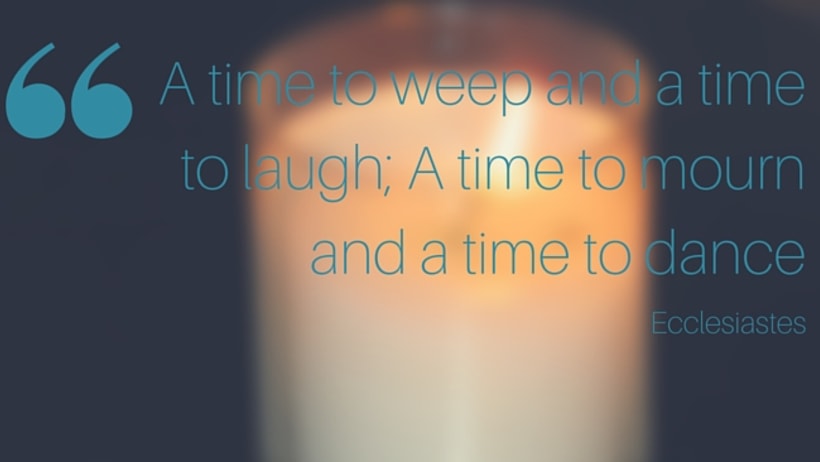If you have some knowledge of the medical world, you may know that septic shock isn’t something you typically bounce back from. My mourning process for my father started when it became clear that he was not going to survive this attack to his vital systems. That’s when it hit me that I would be without my father’s physical presence for the rest of my life.

It sounds strange to begin mourning before a death. After all, he was still breathing. But what triggered my early grief was knowing that each breath brought him closer to his last and that after he was extubated, any moment might be our last together.
Everyone mourns in their own way. My mom, my sister, and I all expressed our feelings differently and on different timelines. I’m not embarrassed to say I was a wreck because I had already accepted the next phase and was plunged into the emotional depths of this loss, but my process was unique to me. We did our best to comfort each other, even as we were in three different phases and mindsets.
Just as no two people are exactly alike, no two relationships between people are exactly alike. That’s the reason the mourning process works differently for every mourner. Individual circumstances shaped my relationship, so there was no “one grief fits all” solution for my pain.
Parshat Vayeshev, which we read this week, shares this idea in its own way. The narrative begins with Joseph’s dreams and his brothers’ revenge on him for sharing his prophetic visions. Jacob is then told that Joseph is gone, and we read about Joseph’s experiences in Potiphar’s house, including his jailing and dream interpretation for fellow prisoners the butler and the baker.
When Jacob is told of Joseph’s “demise,” he reacts as any parent would – he is inconsolable. The text literally reads that he “refused to be comforted.” The word for “comforting a mourner” in Hebrew is l’hitnachem, which is reflexive. Thus, Jacob refused to comfort himself. Samson Raphael Hirsch teaches that we can never truly comfort a mourner, even when we have known a similar loss. We can only surround the mourners with a sense of being cared about, in the hope that this will bring them to the point of comforting themselves.
Parshat Vayeishev is a reminder that we all experience our relationships and the world in unique ways. For that reason, we’re not obligated to heal one another, we’re obligated to be there for one another so the healing can happen.
-Rabbi Eve Posen
Source: A Time to Mourn – Parshat Veyeshev 5776 – Rabbi Eve Posen



